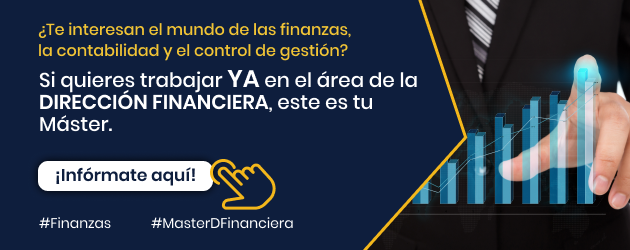Until recently, the term hybrid could be identified with technological prototypes and impacts, business formats or the rising automotive automation process, to name just a few possibilities. However, more recently, hybridity has begun to be positioned in unusual spaces.
The recent crisis between the European Union (EU) and Belarus has been described by the EU as a “hybrid attack”, and the concept of hybrid warfare It has been generating, for some time now, a qualitatively different understanding of war, peace and conflicts in the four parts of the globe, precisely because of its meaning of combining elements of different natures in a product. This fact is not minor, the environment and business actions have been conventionally referred to and internalized as a military campaign, a war strategy or an operational tactical procedure. The similarities between the warrior and the entrepreneur are clear. It is enough to review Sun Tzu or La Fontaine's moral of the dog and the wolf (entrepreneur) to know the impact of the ancient tradition of action, fierceness, experiential freedom and winning – above all – in the business (operations) theater.
But if war and conflict change as a result of hybridity, can companies continue to manage the old analogies and comparisons with the war space without facing mishaps or bad results? Well, it seems not. If hybridity emerges as a concept capable of impacting the lives of people in different social fields, companies must take into account that the business environment is not immune to such changes or conditions altered by different and unsuspected influences – both in an individual and collective level.
In my judgement a hybrid business approach It requires incorporating increased capabilities and, in particular, seeking as competency achievements in new entrepreneurs that “resilience capacity to face new unknown crises” (Human Development Report, UNDP, 2019). Hybridization in this case has to do with the metamorphic generation of new conflicts and threats. Indeed, from the “yellow vests” to the zero-emission zones, the change in the energy matrix is undoubtedly and unstoppable. Global supply chains are being impacted by energy, pandemic or political issues (for example, the post-Brexit case in the United Kingdom). New Delhi has imposed a lockdown due to air pollution. What do Texas and Lebanon have in common? Light outages. Meanwhile, in Austria it was alerted in November 2021: “The question is not if there will be a blackout but when”. COP26 almost collapsed – or perhaps, running out of air would be a more accurate phrase? – for one word: coal.
These new conditions, these new threats, can emerge anywhere on the globe and at any time, and in doing so all business strategies may prove insufficient if hybridity does not begin to be anticipated, foreseen and managed. From the socio-environmental axis of conflicts we are moving to the socio-electrical axis. From the delimited, explicit and temporary zones of war, insecurity or violence of yesteryear, we have become increasingly accustomed to mixed, opaque and timeless zones. Preparing for the shock, for the unleashed crisis, for the absolute alteration of normal and traditional flows seems to be a good thing, and also a necessary wisdom in uncertain and insecure times.
Welcome to hybrid times, where constant testing (now outside the laboratory), mixing and fusion in all fields, share stellar roles with a citizenry stunned by abrupt and challenging changes, and a technological heritage with decisive and totalizing pretensions. . That seems like a good cast of the new hybrid landscape.
A second issue with hybrid times is generating hybrid thinking. Functionalities, efficiencies, articulations, results, sufferings, losses, rationalities, everything, absolutely everything, must be approached with the hybrid prism, to estimate its worth, relevance or subsistence. Goods, artifacts, styles, routines, performances, criteria, must be the object of constant evaluation to determine their coordinating effect or their vital impoverishment. Let's take a car (automobile) as an example. Once synonymous with expansive freedom, family and work organization, mental and physical exercises - think of mechanical repairs or autonomous representations of travel maps -, prestige and reputation in an expanded range. As a result of the digitalization of life, the car is increasingly becoming a heteronomous, unhealthy, dysfunctional and restrictive space in times of pandemics, confinements, crises and lack of protections that emerge like mushrooms everywhere. Does that rule it out as a prosthetic and supportive artifact? Of course not, but it makes it necessary for us to take a rationalizing distance, in order to prevent it from complicating and dumbing us down due to its impact on the cognitive level, as electricity and automation They make us expendable as drivers within them, something that is already rapidly underway.
If that happens in our lives, in our ventures, in our management, coordination or support roles, it cannot be different. What works today will complicate tomorrow, last week's routine will be next month's chaos, the apparent format in a context has the hours numbered to continue performing adequately in a short time. Precariousness and contingency are increasingly more pressing and intense, incorporating Spinoza's recommendation will be useful for these hybrid times: knowing that in this life we are going to suffer and we are going to die is a good recipe for being happy. In the same way, knowing that at any time and in any place things can get complicated and suddenly explode will make us good managers. Let us remember that metamorphoses are not spectacular, manifest and predictable. All our acquired knowledge about calculation, foresight and entrepreneurial spirit has been of little use during the current pandemic. Consumerist and individualistic stoicism does not seem like a good and advisable route even though it can be widely extended and replicated. Pragmatist cooperation, precarious profit, new emotional aptitudes, image differentiation, seem to us qualified resources to tackle hybrid times.
Trying contextually, imagining from precariousness, being moved reflectively, here is a coherent course of action for the current hybrid times, in which you have to change your life, and in which you must hybridize, so as not to perish.
Marco Barboza
Center for Biomedical and Environmental Technological Research (CITBM). Visiting Research Fellow Wolfson Institute of Population Health, Queen Mary University of London.




































